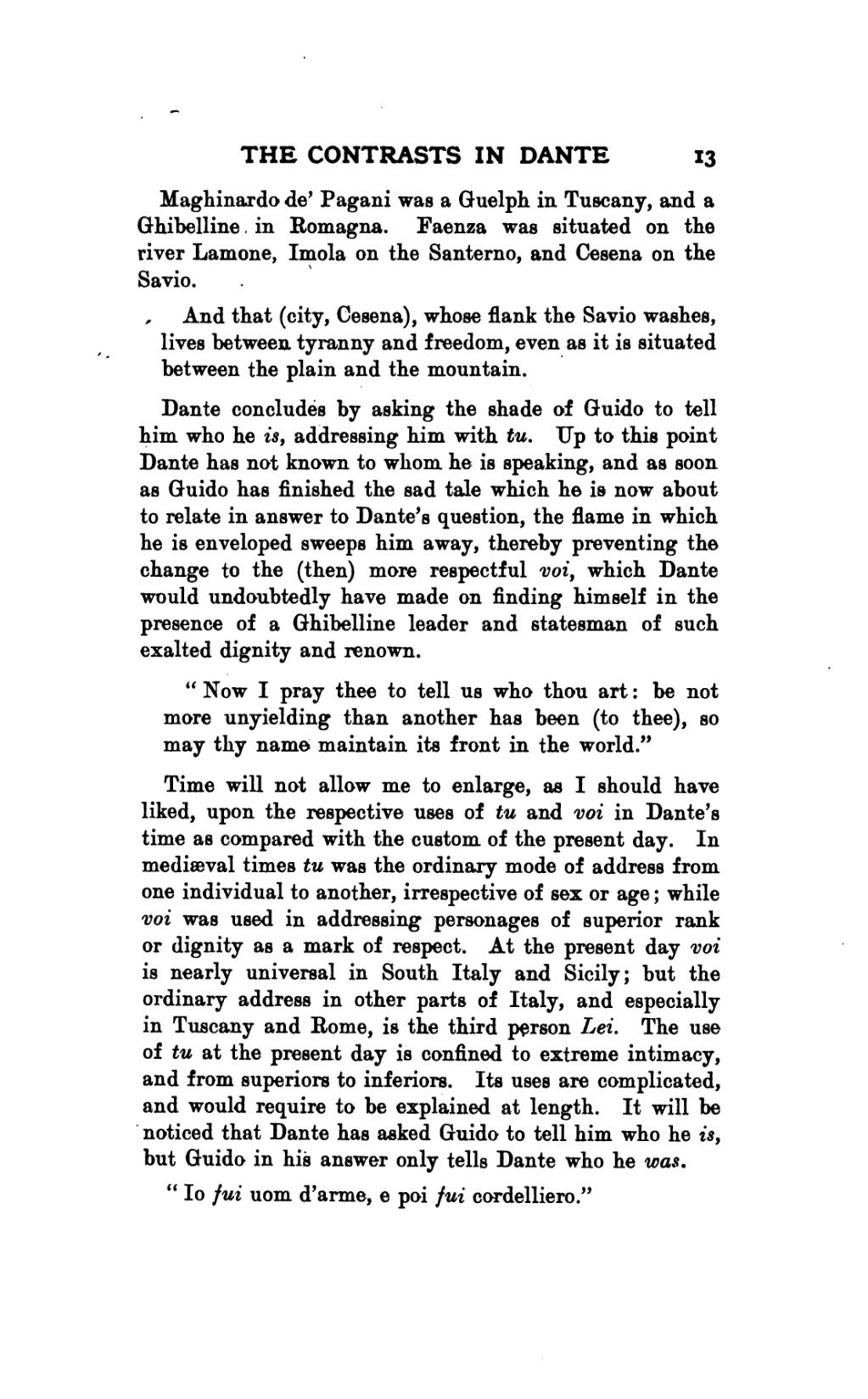Maghinardo de' Pagani was a Guelph in Tuscany, and a Ghibelline in Romagna. Faenza was situated on the river Lamone, Imola on the Santerno, and Gesena on the Savio.
- And that (city, Cesena), whose flank the Savio washes, lives between tyranny and freedom, even as it is situated between the plain and the mountain.
Dante concludes by asking the shade of Guido to tell him who he is, addressing him with tu. Up to this point Dante has not known to whom he is speaking, and as soon as Guido has finished the sad tale which he is now about to relate in answer to Dante's question, the flame in which he is enveloped sweeps him away, thereby preventing the change to the (then) more respectful voi, which Dante would undoubtedly have made on finding himself in the presence of a Ghibelline leader and statesman of such exalted dignity and renown.
- "Now I pray thee to tell us who thou art: be not more unyielding than another has been (to thee), so may thy name maintain its front in the world."
Time will not allow me to enlarge, as I should have liked, upon the respective uses of tu and voi in Dante's time as compared with the custom of the present day. In mediaeval times tu was the ordinary mode of address from one individual to another, irrespective of sex or age; while voi was used in addressing personages of superior rank or dignity as a mark of respect. At the present day voi is nearly universal in South Italy and Sicily; but the ordinary address in other parts of Italy, and especially in Tuscany and Rome, is the third person Lei. The use of tu at the present day is confined to extreme intimacy, and from superiors to inferiors. Its uses are complicated, and would require to be explained at length. It will be noticed that Dante has asked Guido to tell him who he is, but Guido in his answer only tells Dante who he was.
- "Io fui uom d'arme, e poi fui cordelliero."
